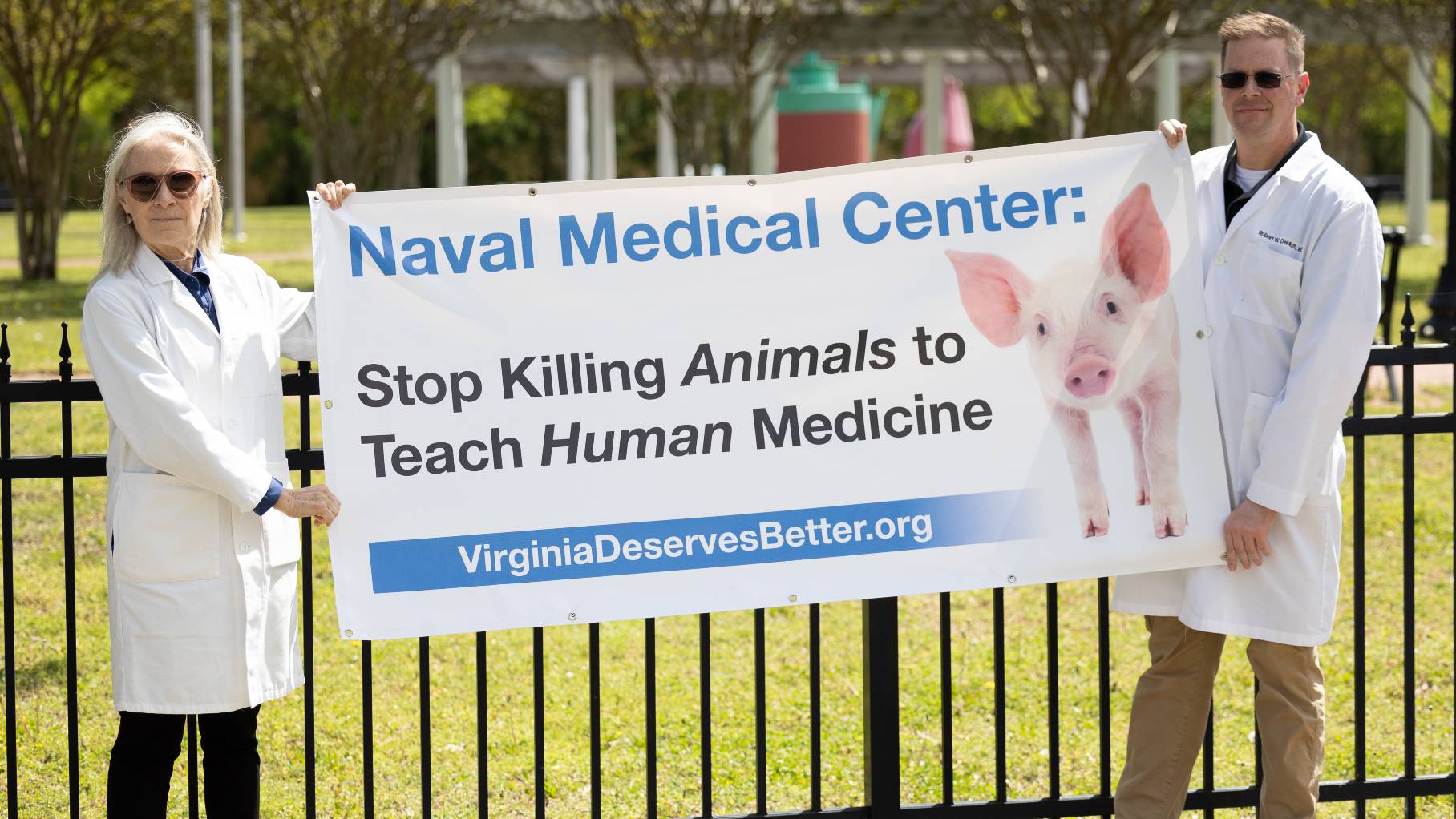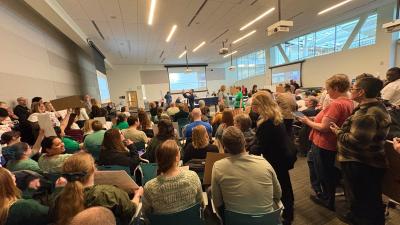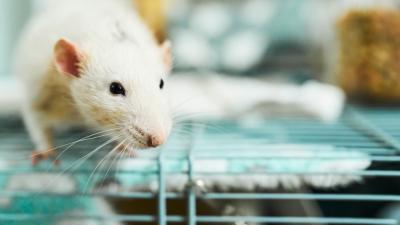With Protest and Barrage of Local Ads, Doctors Condemn Naval Medical Center Portsmouth’s Deadly Use of Animals in Medical Training

PORTSMOUTH—During a protest led by an Army veteran and physician on Thursday, the Physicians Committee for Responsible Medicine called on Naval Medical Center Portsmouth to end its lethal use of animals in a medical training course. Robert DeMuth, MD, who trained medics with the Army’s 2nd Armored Cavalry Regiment without using animals and was deployed twice to Iraq, also wrote Thursday to the hospital’s commanding officer to urge her to “eliminate the use of live animals for training emergency medicine residents.”
Joining Dr. DeMuth, Kerry Foley, MD, and area residents held banners and signs reading “Naval Medical Center: Stop Killing Animals to Teach Human Medicine. VirginiaDeservesBetter.org,” “Modernize Military Training,” and “Stop Using Animals.”
In addition to the protest, the Physicians Committee purchased 17 outdoor ads to run across the Hampton Roads, including a large, prominent ad at the Norfolk Downtown Transit Center, 10 large ads on the outside of area buses, and ads in six bus shelters. The ads feature a ship as seen from the perspective of someone left behind in choppy, dark water and read: “At Naval Medical Center Portsmouth, physician training leaves dead animals in its wake. TroopsDeserveBetter.org.”
At NMCP, trainees practice invasive medical procedures on live pigs before the animals are killed. But the Physicians Committee’s survey of emergency medicine residency programs shows that 97% of responsive medical centers across the U.S. and Canada do not use animals—including Virginia Tech, Eastern Virginia Medical School, the University of Virginia, and Virginia Commonwealth University. Naval Medical Center San Diego replaced animals in its program in 2014. Instead, these programs use educationally superior methods that accurately replicate human anatomy and physiology. Known as simulators, these training devices can bleed, feature layers of lifelike skin, fat, and muscle, and are reusable. NMCP’s state-of-the-art simulation center could provide the resources to replace animal use.
“My soldiers were well prepared for deployment, and the lives they saved prove it,” said Dr. DeMuth. “I have practiced on animals and simulators, and there is no doubt that simulators are a better way to train for battlefield medicine.” DeMuth’s letter to NMCP points to studies funded by the American, Canadian, and Israeli militaries showing that training on simulators is as effective or better than training on animals.
For an interview with Dr. DeMuth, a copy of the letter from Dr. DeMuth, ad location, or design files, please contact Reina Pohl at 202-527-7326 or rpohl [at] pcrm.org (rpohl[at]pcrm[dot]org).
Media Contact
Reina Pohl, MPH
202-527-7326
rpohl[at]pcrm.org
Founded in 1985, the Physicians Committee for Responsible Medicine is a nonprofit organization that promotes preventive medicine, conducts clinical research, and encourages higher standards for ethics and effectiveness in education and research.








